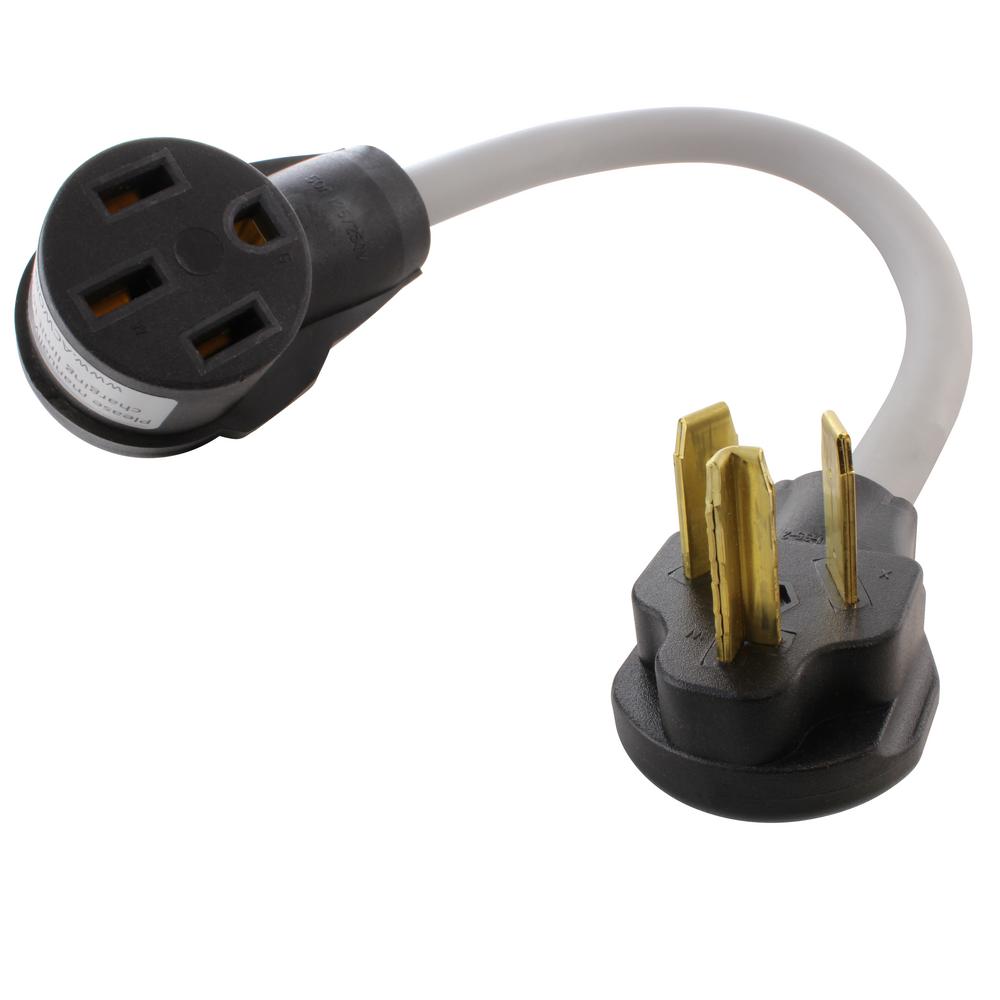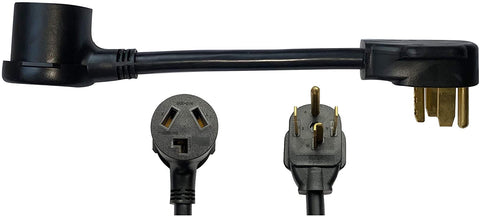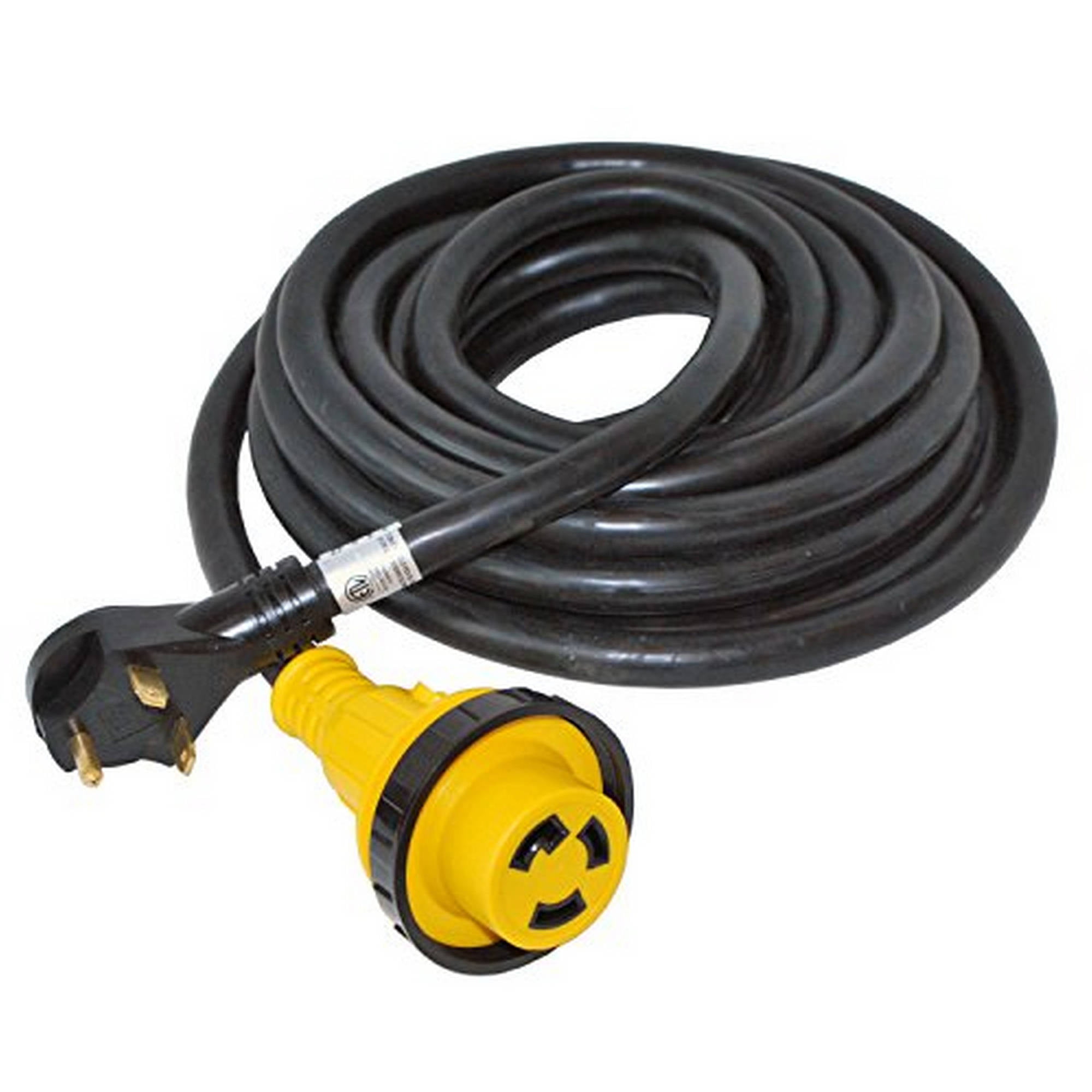

- 30 amp rv plug to dryer plug generator#
- 30 amp rv plug to dryer plug upgrade#
- 30 amp rv plug to dryer plug portable#

You can also recharge your batteries by driving your RV.
30 amp rv plug to dryer plug generator#
If you choose this option, be sure to get a generator that is rated for the size of your RV. This is a faster way to recharge your batteries, but it is also more expensive and noisy.
30 amp rv plug to dryer plug portable#
It can take several hours to charge your RV batteries using a power converter fully.Īnother option is to use a portable generator to recharge your RV batteries. This is the safest way to recharge your RV batteries, but it is also the slowest. One is to use a power converter to take the 120-volt current from your home outlet and convert it into a 12-volt current. If you need to recharge your RV batteries, there are a few different options that are safe and effective. If you plug your RV into a household outlet, you’re likely to damage your RV’s electrical system, overheat the wiring, and potentially start a fire. Most household outlets are 120-volt, 20-amp outlets, while RVs typically use a 12-volt system. The problem is that the outlets in your home are designed for household appliances, which use a different voltage than RVs. After all, if your RV is plugged into your house, you can just run an extension cord from your outlet to your RV and be all set, right? That’s why many RVers choose to plug into a home outlet when they’re staying stationary for a while. RVs require a lot of power to run all of the appliances, lights, and other features, and it can be tough to keep up with the demand when you’re on the road. In this article, we’ll detail why you can’t simply plug your RV right into a plug at your house, and what some safe alternatives are.Īs any RVer knows, one of the lifestyle’s challenges is finding ways to recharge the batteries. There are some solutions that will allow you to use your home electricity to charge your RV. Plugging your RV into your dryer outlet will damage your batteries, could damage the electrical system in your house, and, in the worst case, could start a fire. The plugs may look the same, but they handle different amounts of voltage. Can I plug my camper into a 110 outlet?.How do I plug my 30 amp RV into my house?.What to do if you can’t use your RV’s plug.


30 amp rv plug to dryer plug upgrade#
Just for info, the breakers are all 15 amp, except for the one on the bottom left, which is a 20 amp GFCI breaker, although that doesn't appear to be connected on the other end, so might get removed in the new panel.Īlso, I will most likely upgrade all of the 15 amp breakers to AFCIs, considering they're all associated with bedrooms (yeah I know that's a lot of outlets and lights :D). Seems hard to find that kind of wire, though. So when I get the new panel (), does that mean I'll have to wire a ground wire from the main panel? If so, what AWG? Since this is 70 amp, I'm assuming 4 AWG. It appears that the neutral (the bus on the left) and ground (the bus on the right) bus are connected. One of the things I have noticed first of all is that there is no ground wire. I decided to take a look at the sub-panel (since I was considering updating it to a newer one), which is running off of a 240 volt 70 amp breaker on the main panel and appears to be a Siemens ITE from around the 80s or early 90s, and this is what I found inside (sorry for it being blurry): The other day, I was thinking of a few electrical 'improvements' to my home.


 0 kommentar(er)
0 kommentar(er)
